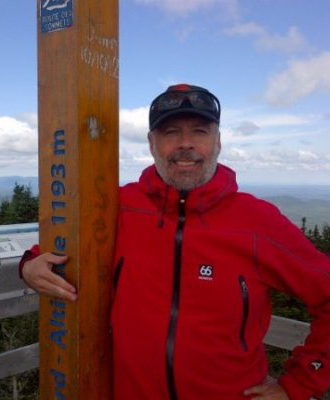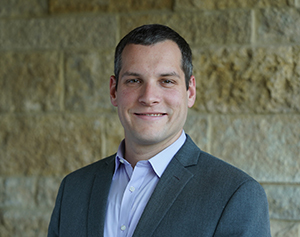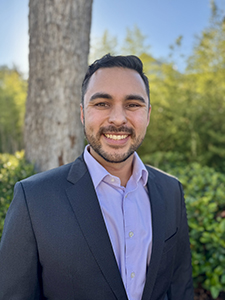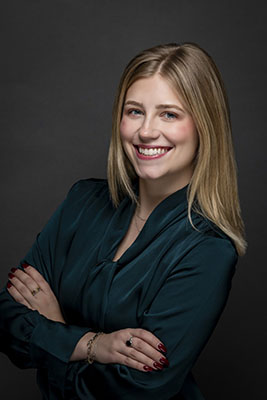Our Member Spotlight highlights our members and their achievements! Each month, we will highlight a member online and in our weekly e-bulletin. Nominate yourself for a monthly spotlight and share your story to help us strengthen the community of the CAS and inspire future actuaries. You can also nominate another member for one of our monthly spotlights.
Past Member Spotlights

Where do you work and what is your position?
TD Insurance Agile Product Owner – General Insurance Product Enhancements & Regulatory Projects)
Why did you decide to become an actuary?
Wanted to work in a applied math environment with great growth potential
What aspects of the field do you love?
All things related to Governance and Operational Excellence
What is the best career advice you have ever received?
Be honest with yourself and do work that gets you excited
Do you have any advice for those just starting out?
Be bold, never take No as an answer and transform that in opportunities.
What is your favorite CAS memory?
CAS 1989 75th Anniversary Gala in the Egyptian areas of the Metropolitan Museum
What is a fun fact about yourself that many people don’t know about?
Active long distance master swimmer

Where do you work and what is your position?
Deloitte Consulting LLP | P&C Actuarial Senior Manager
Why did you decide to become an actuary?
In high school, I explored different professions knowing I wanted to do something with mathematics and business. In talking to a family member, he recommended that I explore actuarial, accounting, and finance. Actuarial was by far the most interesting to me and showed the most career growth potential, in addition to being the voted one of the best job in the US.
What aspects of the field do you love?
The ability to work with clients to solve their most difficult problems!
What is the best career advice you have ever received?
Network, network, network. Our profession is small and getting to know others in our profession can help open doors.
Do you have any advice for those just starting out?
Be curious! Actuaries are in a wide variety or roles within organizations and exploring different opportunities can allow you to find your dream role.
What is your favorite CAS memory?
Receiving my ACAS. After years of studying, it was a huge accomplishment and made the thousands of hours worth it!<
What is a fun fact about yourself that many people don’t know about?
I am a huge survivor fan and would love to be on the show someday! Years ago, an SOA actuary was on the show and did very well but did not win. I would love to win to show that CAS actuaries are the better

Where do you work and what is your position?
I am a Pricing Director at USAA, leading a team of actuarial analysts responsible for conducting pricing analyses. Our work enables USAA to offer the most competitive rates for our unique military membership.
Why did you decide to become an actuary?
I discovered my love for statistics in high school, which guided my decision to pursue a math-related field in college. Once I learned what actuaries do, I knew it was the perfect fit and that I had found my calling.
What aspects of the field do you love?
I love the math, of course, but I also appreciate the people - actuaries are truly underrated! Throughout my career, I’ve worked in marketing, corporate responsibility, product development, and state management, and across all these areas, actuaries have stood out as some of the most driven, creative, and intelligent professionals I’ve encountered.
What is the best career advice you have ever received?
The best career advice I’ve ever received was to branch out. After earning my ACAS, I asked a former manager, “What should I do next?” His advice was to step beyond a traditional actuarial role. Three weeks later, I took a job in Corporate Responsibility (ESG). It was challenging and intimidating, but that experience broadened my perspective and pushed me to think differently. I believe it has made me a better actuary.
Do you have any advice for those just starting out?
Find your people. I’ve been at USAA for nearly 15 years, and the actuaries I’ve met along the way have become not just colleagues, but also friends and my greatest supporters. We have lifted each other up through exam successes and failures, changing bosses, weddings, kids, and even cancer. Starting out can be incredibly tough because you are balancing a demanding job while tackling rigorous exams. Take a moment to appreciate the people around you. If you nurture those relationships, they may become lifelong friends and invaluable advisors.
What is your favorite CAS memory?
My favorite CAS memory was the recent Fall Meeting in Phoenix. I’ve become more involved in volunteering, starting with joining the board of SWAF (Southwest Actuarial Forum) and later participating in the Academy’s Committee on Equity and Fairness. This fall, I finally had the opportunity to meet and catch up in person with actuaries I had previously only interacted with over Zoom. Connecting with other volunteers has made my CAS experience even more enjoyable.
What is a fun fact about yourself that many people don’t know about?
I was a huge band nerd in high school and even chose to skip my graduation to perform with the Cavaliers Drum Corps. That summer was incredibly hot and sweaty, with nights spent sleeping on gym floors and traveling from city to city. By August, all the hard work paid off when my group became world champions!




